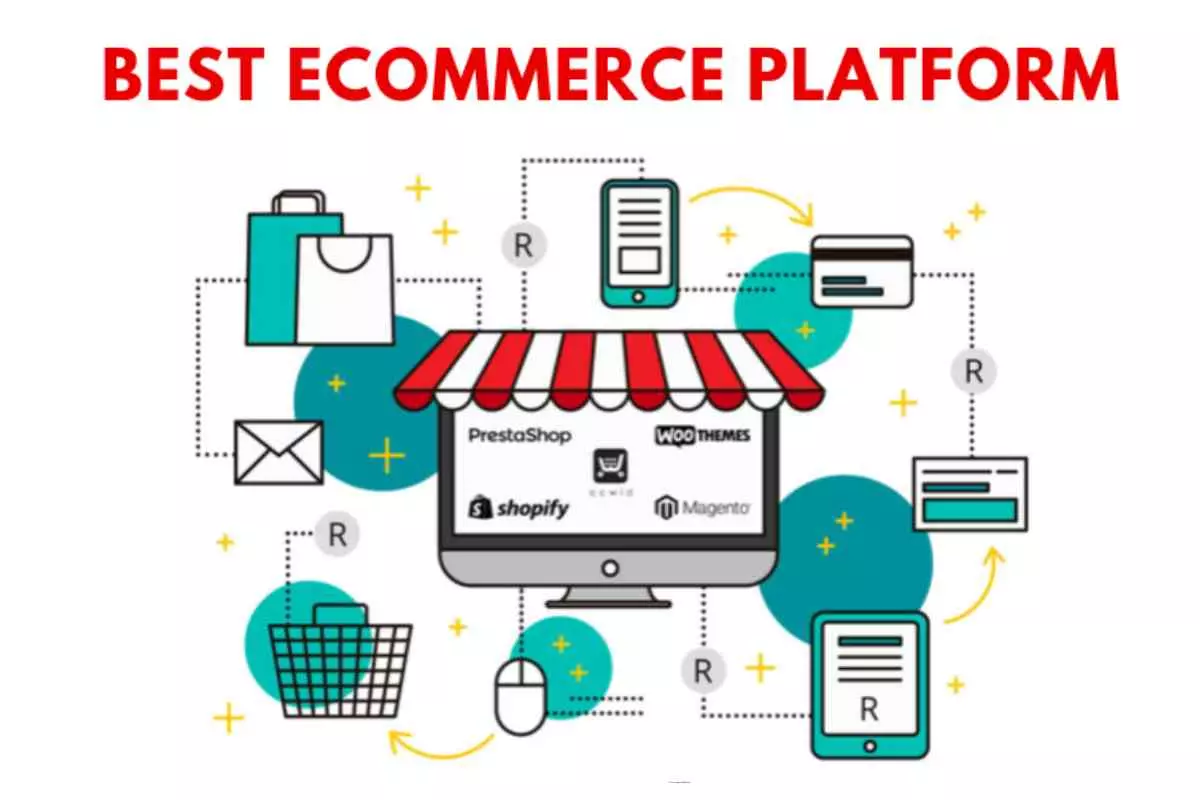Are you an angel investor eager to navigate the dynamic world of startup investments and make impactful contributions to emerging ventures? Welcome to TacticInvest, where we delve into the realm of promising startup opportunities, guiding you through the top ten investment options. From revolutionary technology ventures to groundbreaking healthcare initiatives, join us as we explore diverse avenues to support and fund promising startups, maximizing your potential for both financial growth and societal impact.
| Investment Options | Description |
| Technology | Invest in startups focused on AI, blockchain, cybersecurity, and other cutting-edge technologies. |
| Biotech and Healthcare | Support startups developing breakthrough medical innovations and solutions in the healthcare industry. |
| E-commerce Platforms | Fund startups offering unique product offerings or efficient logistics in the rapidly growing e-commerce sector. |
| Clean Energy Ventures | Invest in startups developing renewable energy solutions, energy efficiency technologies, and sustainable practices. |
| Fintech Companies | Support startups disrupting traditional financial services with innovations in payments, lending, and wealth management. |
| Real Estate Technology | Fund startups revolutionizing the real estate industry with technology-driven solutions in property management, digital marketplaces, and smart home automation. |
| Mobility and Transportation | Invest in startups developing electric vehicles, autonomous driving technology, and urban mobility solutions. |
| FoodTech Innovations | Support startups revolutionizing the food industry with innovations in food production, distribution, and waste reduction. |
| EdTech Platforms | Fund startups transforming education through online learning platforms, adaptive technologies, and skill development programs. |
| Consumer Goods and Services | Invest in startups offering differentiated offerings and strong brand positioning in consumer goods and services sectors. |
Technology startups

In today’s rapidly evolving technological landscape, the realm of startup ventures shines brightly with promise and innovation. Among the myriad sectors captivating the attention of investors, few hold as much allure and potential for exponential growth as technology startups. In this dynamic arena, pioneers in Artificial Intelligence (AI), blockchain, and cybersecurity stand out as beacons of ingenuity, offering not just solutions but transformative advancements that redefine industries and reshape the future.
Artificial Intelligence (AI): Unleashing the Power of Intelligent Machines
At the forefront of technological innovation, AI startups harness the power of machine learning, neural networks, and data analytics to imbue machines with the ability to learn, reason, and make decisions autonomously. From predictive analytics driving targeted marketing strategies to chatbots revolutionizing customer service, the applications of AI span across sectors, promising unparalleled efficiency, insight, and scalability.
Consider the case of a startup developing AI-powered healthcare solutions. By analyzing vast troves of medical data, their algorithms can predict patient outcomes, personalize treatment plans, and even assist in early disease detection, revolutionizing healthcare delivery and improving patient outcomes.
Blockchain: Redefining Trust and Transparency
In the realm of digital transactions and decentralized systems, blockchain startups emerge as vanguards of trust and transparency. Leveraging immutable ledgers and cryptographic techniques, blockchain technology offers secure, tamper-proof solutions for a myriad of applications, from financial transactions to supply chain management and beyond.
Imagine a blockchain startup disrupting the real estate industry by facilitating transparent and efficient property transactions. Through smart contracts and decentralized platforms, they streamline the buying and selling process, reducing friction, minimizing fraud, and empowering individuals to transact with confidence in a trustless environment.
Cybersecurity: Safeguarding Digital Assets in an Era of Threats
With the proliferation of digital assets and interconnected systems, cybersecurity startups play an indispensable role in safeguarding against evolving threats and vulnerabilities. From ransomware attacks targeting businesses to data breaches compromising personal privacy, the need for robust cybersecurity solutions has never been more pressing.
Enterprising startups in this space leverage cutting-edge technologies such as machine learning and behavioral analytics to fortify defenses, detect intrusions, and mitigate risks in real-time. Through innovative approaches to threat intelligence and proactive security measures, they empower organizations to navigate the digital landscape with resilience and confidence.
In conclusion, technology startups encompass a vast and dynamic ecosystem of innovation, where visionary entrepreneurs dare to dream and disrupt conventional paradigms. Whether harnessing the power of AI to unlock new frontiers of intelligence, pioneering blockchain solutions to redefine trust and transparency, or fortifying defenses against cyber threats, these startups exemplify the spirit of innovation that propels society forward. As angel investors, embracing the potential of technology startups offers not just the promise of high returns but the opportunity to shape a future where the boundaries of possibility are continually redefined.
Biotech and healthcare
In the ever-evolving landscape of biotech and healthcare, the potential for groundbreaking innovation is not only palpable but also profoundly impactful. For angel investors seeking to make a difference while reaping substantial returns, the realm of biotech and healthcare startups offers a compelling arena ripe with promise and potential.
Pioneering Medical Frontiers: The Role of Biotech Startups
At the forefront of medical advancement, biotech startups harness the power of biology, genetics, and cutting-edge technology to develop novel therapies, diagnostic tools, and treatment modalities. From precision medicine tailored to individual genetic profiles to gene-editing techniques that hold the promise of curing previously incurable diseases, the potential for transformative breakthroughs is boundless.
Consider the case of a biotech startup focused on developing personalized cancer treatments. By leveraging genomic sequencing and advanced analytics, they identify unique genetic markers within tumors, enabling the targeted delivery of therapies that maximize efficacy while minimizing adverse effects. Such innovations not only offer hope to patients but also represent lucrative investment opportunities for discerning angel investors.
Revolutionizing Healthcare Delivery: The Rise of Healthcare Startups
In parallel, healthcare startups are revolutionizing the way healthcare is accessed, delivered, and experienced. Through innovative technologies and disruptive business models, these startups address inefficiencies, improve patient outcomes, and enhance the overall healthcare experience.
Take, for instance, a healthcare startup leveraging telemedicine and remote monitoring to provide accessible and convenient healthcare services. By connecting patients with healthcare providers virtually, they overcome geographic barriers, reduce wait times, and empower individuals to take charge of their health from the comfort of their homes. Such advancements not only optimize healthcare delivery but also represent lucrative investment opportunities with the potential for widespread adoption and scalability.
Navigating Regulatory Challenges: The Path to Market Success
Despite the promise of innovation, navigating the complex regulatory landscape poses a significant challenge for biotech and healthcare startups. From stringent FDA approvals to compliance with healthcare regulations, the path to market success is fraught with regulatory hurdles that can impede progress and delay commercialization.
However, savvy startups equipped with strategic regulatory guidance and robust compliance frameworks can navigate these challenges effectively, positioning themselves for market success and investor confidence. By prioritizing regulatory compliance and fostering partnerships with regulatory agencies, startups can streamline the path to market approval and accelerate the adoption of their innovations.
Conclusion: Investing in the Future of Healthcare
In conclusion, investing in biotech and healthcare startups offers angel investors not just the promise of substantial returns but also the opportunity to catalyze transformative medical advancements that improve lives and shape the future of healthcare. From pioneering medical frontiers to revolutionizing healthcare delivery, the realm of biotech and healthcare startups represents a compelling investment opportunity for those with the vision, foresight, and courage to invest in the future of healthcare innovation.
E-commerce platforms

In the bustling landscape of modern commerce, the rise of e-commerce platforms stands as a testament to the transformative power of technology and consumer behavior. With the convenience of online shopping becoming increasingly ingrained in daily life, the allure of investing in e-commerce ventures has never been more compelling. From niche boutiques to industry giants, e-commerce platforms offer angel investors a fertile ground for cultivating substantial profits and fostering innovation in the digital marketplace.
Riding the Wave of Online Shopping: The E-Commerce Revolution
Gone are the days of crowded malls and lengthy checkout lines. Today, consumers flock to e-commerce platforms for the convenience of shopping from the comfort of their homes, the breadth of product offerings, and the ease of comparison shopping. With smartphones becoming ubiquitous and internet connectivity reaching unprecedented levels, the stage is set for e-commerce to thrive on a global scale.
Unlocking Profit Potential: Investing in E-Commerce Ventures
For angel investors seeking lucrative opportunities, investing in e-commerce platforms presents a compelling proposition. Whether it’s niche e-commerce stores catering to specialized interests or behemoth marketplaces offering everything from electronics to apparel, the potential for significant profits abounds.
Consider the case of an e-commerce startup specializing in sustainable fashion. By curating ethically sourced and environmentally friendly clothing collections, they tap into a growing consumer demand for conscious consumption while carving out a niche in a competitive market. With the right branding, marketing strategy, and logistical infrastructure, such ventures have the potential to yield substantial returns for savvy investors.
The Power of Differentiation: Unique Product Offerings and Brand Identity
In the crowded e-commerce landscape, differentiation is key to success. E-commerce platforms that offer unique product offerings, innovative solutions, or compelling brand narratives stand out amidst the noise and capture the attention of discerning consumers.
Take, for instance, a startup that specializes in customizable home decor. By leveraging advanced design tools and 3D printing technology, they empower customers to create personalized furnishings and decor items tailored to their individual tastes and preferences. Such innovative offerings not only attract customers but also foster brand loyalty and drive repeat business, enhancing the long-term viability and profitability of the e-commerce platform.
Efficiency is Key: Streamlining Logistics and Fulfillment
In addition to product differentiation, efficient logistics and fulfillment processes are essential components of a successful e-commerce operation. E-commerce platforms that invest in robust supply chain management, inventory optimization, and seamless order fulfillment are better positioned to meet customer expectations and deliver exceptional shopping experiences.
Consider the success of an e-commerce startup that prioritizes same-day or next-day delivery options for its customers. By partnering with local fulfillment centers and leveraging advanced logistics technology, they ensure fast and reliable delivery, enhancing customer satisfaction and driving sales. Moreover, efficient logistics operations translate into cost savings and scalability, further bolstering the profitability and growth potential of the e-commerce platform.
Conclusion: Seizing Opportunities in the Digital Marketplace
In conclusion, investing in e-commerce platforms offers angel investors the opportunity to capitalize on the growing trend of online shopping and reap significant profits in the digital marketplace. Whether it’s through unique product offerings, compelling brand narratives, or efficient logistics operations, e-commerce ventures represent a compelling investment opportunity for those with the foresight and strategic vision to navigate the evolving landscape of modern commerce. As the world continues to embrace the convenience and accessibility of online shopping, the potential for innovation and growth in the e-commerce sector remains boundless, making it an attractive destination for angel investors seeking to maximize their returns and shape the future of retail.
Fintech companies

In the ever-evolving landscape of finance, the rise of fintech startups has sparked a revolution, challenging traditional financial institutions and reshaping the way we manage and interact with money. From revolutionizing payments and lending to democratizing wealth management, these innovative ventures are not just disrupting the status quo but also offering angel investors an enticing opportunity to participate in the future of finance.
Pioneering Innovation: The Fintech Revolution
At the heart of the fintech revolution lies a commitment to innovation and a drive to leverage technology to address long-standing challenges in the financial industry. Fintech startups harness cutting-edge technologies such as artificial intelligence, blockchain, and big data analytics to develop disruptive solutions that streamline processes, enhance accessibility, and empower individuals to take control of their financial lives.
Revolutionizing Payments: From Cashless Transactions to Digital Wallets
One of the most visible manifestations of fintech innovation is the transformation of payment systems. Fintech startups are pioneering the shift towards cashless transactions, offering seamless and secure payment solutions that transcend traditional boundaries. Whether it’s mobile payment apps, peer-to-peer payment platforms, or contactless payment technologies, fintech companies are redefining the way we exchange value and conduct transactions in the digital age.
Consider the success of a fintech startup that develops a mobile payment app tailored to the needs of small businesses. By offering intuitive invoicing tools, real-time payment processing, and integrated financial management features, they empower entrepreneurs to streamline their operations and improve cash flow management. Such innovations not only drive efficiency but also foster financial inclusion and stimulate economic growth.
Empowering Borrowers: Disrupting the Traditional Lending Landscape
In addition to payments, fintech startups are disrupting the traditional lending landscape, democratizing access to capital and revolutionizing the way individuals and businesses borrow money. Through peer-to-peer lending platforms, algorithm-based credit scoring models, and alternative financing options, fintech companies are challenging the dominance of traditional banks and empowering borrowers with greater choice and flexibility.
Imagine a fintech startup that utilizes machine learning algorithms to assess creditworthiness and offer personalized loan products to underserved borrowers. By analyzing vast troves of alternative data sources, such as social media profiles and transaction history, they provide loans to individuals who may have been overlooked by traditional lenders. Such initiatives not only expand access to credit but also mitigate the risks associated with traditional lending practices, driving financial inclusion and economic empowerment.
Democratizing Wealth Management: Accessible Investing for All
Furthermore, fintech startups are democratizing wealth management, making investing more accessible and intuitive for individuals of all backgrounds and financial means. Through robo-advisors, fractional investing platforms, and social trading networks, fintech companies are lowering barriers to entry and empowering investors to build diversified portfolios tailored to their goals and risk tolerance.
Consider a fintech startup that offers a robo-advisor platform equipped with personalized investment recommendations and automated portfolio rebalancing. By leveraging machine learning algorithms and behavioral finance principles, they guide investors through the investment process, helping them achieve their financial objectives with confidence and ease. Such platforms not only democratize access to wealth management services but also foster financial literacy and empowerment among investors.
Conclusion: Seizing the Fintech Opportunity
In conclusion, investing in fintech startups offers angel investors a compelling opportunity to participate in the transformation of finance and reap significant returns in the process. Whether it’s revolutionizing payments, democratizing lending, or empowering investors with accessible wealth management solutions, fintech companies are at the forefront of innovation, driving change and reshaping the future of finance. As the fintech revolution continues to unfold, those with the foresight and strategic vision to invest in these disruptive ventures stand to benefit from the convergence of technology, finance, and innovation, shaping the future of financial services and unlocking new opportunities for growth and prosperity.
Clean energy ventures
In an era marked by growing environmental concerns and a pressing need for sustainable solutions, the emergence of clean energy ventures stands as a beacon of hope and opportunity. By supporting startups in renewable energy, energy efficiency, and sustainable technologies, investors not only contribute to environmental preservation but also position themselves to reap substantial long-term financial gains.
A Sustainable Imperative: The Rise of Clean Energy Ventures
At the heart of the clean energy revolution lies a recognition of the urgent need to transition towards sustainable energy sources and reduce our reliance on fossil fuels. Clean energy ventures, encompassing a diverse array of technologies and innovations, play a pivotal role in driving this transition forward, offering innovative solutions to the pressing challenges of climate change and environmental degradation.
Harnessing Renewable Resources: The Promise of Renewable Energy
Renewable energy startups harness the power of abundant and inexhaustible resources such as sunlight, wind, and water to generate clean, sustainable power. From solar panels adorning rooftops to towering wind turbines dotting the landscape, these ventures epitomize the potential of renewable energy to power a cleaner, greener future.
Consider the success of a startup specializing in community solar projects. By aggregating demand from local residents and businesses, they enable communities to collectively invest in solar installations and reap the benefits of clean energy generation. Such initiatives not only reduce carbon emissions but also create jobs, stimulate economic growth, and enhance energy resilience at the local level.
Driving Efficiency: Innovations in Energy Efficiency
In addition to renewable energy generation, startups in the energy efficiency sector focus on optimizing energy consumption and reducing waste across various industries and sectors. Through innovative technologies, smart systems, and data analytics, these ventures unlock opportunities to enhance efficiency, reduce costs, and minimize environmental impact.
Imagine a startup that develops advanced energy management systems for commercial buildings. By leveraging IoT sensors, predictive analytics, and machine learning algorithms, they enable building owners and operators to optimize energy usage, identify inefficiencies, and implement targeted energy-saving measures. Such solutions not only lower operational costs but also contribute to sustainability goals, driving tangible environmental and financial benefits.
Sustainable Technologies: Innovating for a Greener Future
Furthermore, startups in the sustainable technologies sector develop innovative solutions to address a wide range of environmental challenges, from waste management and recycling to water conservation and pollution prevention. By leveraging cutting-edge technologies and creative approaches, these ventures offer holistic solutions to pressing environmental issues, paving the way for a more sustainable future.
Consider a startup that specializes in converting agricultural waste into bio-based materials for use in construction and manufacturing. By repurposing organic waste streams that would otherwise end up in landfills, they reduce greenhouse gas emissions, conserve natural resources, and create sustainable alternatives to conventional materials. Such initiatives not only mitigate environmental impact but also unlock new revenue streams and market opportunities in the burgeoning bioeconomy.
Conclusion: Investing in a Greener Future
In conclusion, supporting startups in renewable energy, energy efficiency, and sustainable technologies offers investors the opportunity to align their financial goals with their environmental values while positioning themselves for long-term financial gains. Whether it’s harnessing renewable resources, driving efficiency improvements, or innovating for a greener future, clean energy ventures exemplify the potential of entrepreneurship to drive positive change and create value for both investors and society as a whole. As the world grapples with the urgent challenges of climate change and environmental sustainability, those who invest in clean energy ventures stand to not only make a difference but also reap the rewards of a cleaner, more sustainable future.
Consumer goods and services

In the bustling marketplace of consumer goods and services, where trends emerge and preferences evolve at a rapid pace, investing in startups with innovative offerings and compelling brand positioning presents a tantalizing opportunity for savvy investors. With the potential for substantial growth and market expansion, these startups exemplify the entrepreneurial spirit and creativity that drive the consumer landscape forward.
Navigating the Consumer Landscape: The Role of Startups
Consumer goods and services startups occupy a unique position within the marketplace, tasked with meeting the ever-changing demands and desires of today’s discerning consumers. Whether it’s introducing novel products that disrupt traditional categories or reimagining service offerings to enhance convenience and accessibility, these startups play a crucial role in shaping consumer preferences and driving market innovation.
Differentiation is Key: Innovative Offerings that Capture Attention
At the heart of successful consumer goods and services startups lies a commitment to differentiation and innovation. By offering products or services that stand out from the competition and address unmet consumer needs, these startups carve out a distinct identity and cultivate a loyal customer base.
Consider the success of a startup that specializes in plant-based alternatives to traditional dairy products. By leveraging innovative ingredients and sustainable production methods, they offer consumers a healthier and more environmentally friendly alternative to conventional dairy, tapping into a growing market segment of health-conscious and environmentally conscious consumers. Such differentiated offerings not only capture attention but also drive demand and fuel growth in the increasingly competitive consumer goods landscape.
Building Brand Equity: The Power of Strong Brand Positioning
In addition to innovative offerings, strong brand positioning is essential for consumer goods and services startups to establish credibility, build trust, and foster brand loyalty. By crafting compelling brand narratives, investing in memorable branding and marketing campaigns, and delivering exceptional customer experiences, these startups differentiate themselves from competitors and create a lasting impression in the minds of consumers.
Imagine a startup that specializes in artisanal home goods crafted by skilled artisans from around the world. By highlighting the stories behind each product, emphasizing the craftsmanship and cultural heritage embodied in every piece, and fostering a sense of connection and authenticity, they elevate their brand beyond mere products to become a lifestyle choice for consumers seeking unique and meaningful experiences. Such strong brand positioning not only drives customer loyalty but also enables startups to command premium pricing and expand into new markets with confidence.
Harnessing Technology: Innovation in Consumer Engagement
Furthermore, consumer goods and services startups are leveraging technology to enhance consumer engagement, streamline operations, and unlock new opportunities for growth. From e-commerce platforms and mobile apps to data analytics and personalized marketing strategies, technology plays a pivotal role in driving innovation and creating seamless experiences for today’s digital-savvy consumers.
Consider a startup that develops a mobile app offering personalized recommendations and exclusive offers based on individual preferences and purchase history. By leveraging machine learning algorithms and predictive analytics, they curate a tailored shopping experience that anticipates and fulfills the unique needs and desires of each customer, driving engagement, loyalty, and repeat business. Such innovative use of technology not only enhances the customer experience but also enables startups to gather valuable insights and optimize their operations for greater efficiency and effectiveness.
Conclusion: Seizing the Opportunity in Consumer Goods and Services
In conclusion, investing in consumer goods and services startups with differentiated offerings and strong brand positioning offers investors the opportunity to capitalize on changing consumer preferences and emerging market trends while positioning themselves for substantial growth and market expansion. Whether it’s through innovative product offerings, compelling brand narratives, or leveraging technology to enhance consumer engagement, startups in this space exemplify the entrepreneurial spirit and creativity that drive the consumer landscape forward. As the consumer goods and services market continues to evolve and innovate, those who invest in startups with the vision, foresight, and strategic positioning to succeed stand to reap the rewards of a dynamic and thriving marketplace.
EdTech platforms

In the digital age, where knowledge is just a click away and learning knows no bounds, the rise of EdTech startups heralds a new era of education. With online learning platforms, adaptive technologies, and skill development programs at the forefront, these startups are revolutionizing the way we teach, learn, and acquire knowledge. Poised for significant growth, EdTech ventures epitomize the transformative power of technology in shaping the future of education.
Empowering Learners: The Promise of Online Learning Platforms
Online learning platforms represent the cornerstone of the EdTech revolution, offering learners of all ages and backgrounds access to a wealth of educational resources, courses, and interactive experiences. From academic subjects to professional development and lifelong learning, these platforms democratize education, breaking down geographic barriers and empowering individuals to pursue their passions and interests at their own pace and convenience.
Consider the success of a startup that specializes in language learning through immersive, gamified experiences. By leveraging interactive exercises, real-life scenarios, and personalized feedback, they transform language acquisition into an engaging and rewarding journey for learners around the world. Such platforms not only foster linguistic proficiency but also cultivate cultural understanding and global citizenship, opening doors to new opportunities and connections in an increasingly interconnected world.
Adaptive Learning: Tailoring Education to Individual Needs
In addition to online learning platforms, EdTech startups are pioneering adaptive technologies that personalize the learning experience and cater to the unique needs and abilities of each learner. Through sophisticated algorithms, data analytics, and machine learning, these technologies assess individual strengths and weaknesses, adapt instructional content in real-time, and provide targeted support to optimize learning outcomes.
Imagine a startup that develops an adaptive math learning platform for students struggling with foundational concepts. By diagnosing areas of difficulty, delivering customized lessons and practice exercises, and monitoring progress over time, they empower students to master math at their own pace and build confidence in their abilities. Such adaptive learning technologies not only improve academic performance but also instill a growth mindset and a love for learning in students, setting them up for success in school and beyond.
Skill Development: Meeting the Demands of the Future Workforce
Furthermore, EdTech startups are addressing the evolving needs of the workforce by offering skill development programs and vocational training courses that prepare individuals for the jobs of tomorrow. From coding bootcamps and digital literacy courses to entrepreneurship workshops and industry certifications, these programs equip learners with the knowledge, skills, and competencies needed to thrive in a rapidly changing economy.
Consider a startup that partners with leading companies to offer job-specific training programs in emerging fields such as artificial intelligence and data science. By aligning curriculum with industry demands, providing hands-on experience through real-world projects, and facilitating mentorship and networking opportunities, they bridge the gap between education and employment, empowering learners to pursue rewarding careers in high-growth industries. Such skill development programs not only address talent shortages and skills gaps but also foster economic mobility and social inclusion, unlocking new pathways to prosperity for individuals and communities alike.
Conclusion: The Future of Education is Here
In conclusion, EdTech startups are at the forefront of a transformative revolution in education, harnessing the power of technology to democratize learning, personalize instruction, and prepare individuals for success in the digital age. Whether through online learning platforms, adaptive technologies, or skill development programs, these startups embody the spirit of innovation and entrepreneurship that drives progress and prosperity in the 21st century. As the demand for accessible, flexible, and relevant education continues to grow, those who invest in EdTech ventures stand to not only make a difference in the lives of learners but also reap the rewards of a more educated, empowered, and connected society.
FoodTech innovations
In an age where the global population burgeons and environmental concerns loom large, the intersection of food and technology, known as FoodTech, emerges as a beacon of innovation and opportunity. With startups leveraging technology to revolutionize food production, distribution, and sustainability, the FoodTech sector presents an exciting frontier for investors seeking both financial returns and positive societal impact.
Feeding the Future: The Role of FoodTech Innovations
FoodTech startups are on a mission to tackle some of the most pressing challenges facing the global food industry, from feeding a growing population to mitigating the environmental impact of agriculture. By harnessing the power of technology, data analytics, and creative thinking, these ventures are reshaping the way we produce, distribute, and consume food, paving the way for a more sustainable and resilient food system.
Revolutionizing Food Production: From Farm to Fork
At the heart of FoodTech innovation lies a commitment to improving food production methods to meet the demands of a growing population while minimizing environmental impact. Startups are leveraging technologies such as vertical farming, hydroponics, and precision agriculture to optimize crop yields, conserve water resources, and reduce reliance on chemical inputs.
Imagine a FoodTech startup that develops vertical farming solutions for urban environments. By utilizing controlled indoor environments, aeroponic systems, and LED lighting, they enable year-round cultivation of fresh produce in densely populated areas, reducing food miles and carbon emissions associated with transportation. Such innovations not only increase food security and access to fresh, nutritious foods but also promote sustainability and resilience in the face of climate change.
Disrupting Food Distribution: The Rise of Food Delivery and Logistics
In addition to transforming food production, FoodTech startups are revolutionizing food distribution and logistics through innovative delivery models and technology-driven solutions. From meal delivery services and ghost kitchens to last-mile delivery platforms, these startups are streamlining supply chains, reducing food waste, and enhancing convenience for consumers.
Consider the success of a FoodTech startup that specializes in meal kit delivery services. By leveraging predictive analytics and machine learning algorithms, they optimize inventory management, minimize food waste, and personalize meal recommendations based on individual preferences and dietary restrictions. Such platforms not only simplify meal planning and preparation for consumers but also reduce the environmental footprint associated with traditional grocery shopping and food delivery.
Promoting Sustainability: Innovations in Food Waste Reduction and Circular Economy
Furthermore, FoodTech startups are pioneering solutions to address the staggering problem of food waste and promote a circular economy within the food industry. Through initiatives such as surplus food redistribution, upcycling of food by-products, and composting solutions, these ventures are reducing waste, conserving resources, and creating value from otherwise discarded materials.
Imagine a FoodTech startup that develops a mobile app connecting food businesses with surplus food to local charities and food banks. By facilitating real-time donations and pickups, they minimize food waste, alleviate hunger in communities, and foster collaboration between food producers, retailers, and nonprofit organizations. Such initiatives not only address the ethical and environmental implications of food waste but also create social value and strengthen community resilience.
Conclusion: Investing in the Future of Food
In conclusion, FoodTech startups are at the forefront of a transformative revolution in the global food industry, leveraging technology to address critical challenges and unlock new opportunities for growth and sustainability. Whether through innovations in food production, distribution, or waste reduction, these ventures exemplify the potential of entrepreneurship to drive positive change and create value for both investors and society as a whole. As the demand for sustainable, nutritious, and ethically produced food continues to grow, those who invest in FoodTech ventures stand to not only make a difference in the way we eat but also reap the rewards of a more resilient, efficient, and equitable food system.
Real estate technology
In the dynamic realm of real estate, where tradition meets innovation, startups developing cutting-edge solutions in real estate technology are rewriting the rules of the game. From property management platforms and digital marketplaces to smart home automation systems, these ventures are not only disrupting traditional practices but also presenting unparalleled opportunities for growth and expansion in the ever-evolving real estate landscape.
Unlocking the Potential of Real Estate Technology
Real estate technology, often referred to as PropTech, represents the convergence of real estate and technology, where innovative solutions are developed to address the challenges and inefficiencies inherent in the real estate industry. By harnessing the power of data, automation, and connectivity, PropTech startups are reshaping the way properties are bought, sold, managed, and experienced, unlocking new possibilities and driving value for stakeholders across the board.
Revolutionizing Property Management: Efficiency and Transparency
At the forefront of real estate technology are startups developing property management platforms that streamline operations, enhance efficiency, and improve transparency for property owners, managers, and tenants alike. These platforms offer a comprehensive suite of tools and features for tasks such as tenant screening, rent collection, maintenance requests, and financial reporting, empowering property managers to optimize performance and maximize returns on investment.
Consider the success of a PropTech startup that offers a cloud-based property management platform with built-in AI capabilities. By automating routine tasks, analyzing market trends, and providing actionable insights, they enable property managers to make data-driven decisions and deliver exceptional service to tenants. Such platforms not only simplify property management processes but also foster greater accountability and trust between landlords and tenants, leading to long-term tenant satisfaction and retention.
Digitizing Real Estate Transactions: The Rise of Digital Marketplaces
In addition to property management, real estate technology startups are disrupting the traditional real estate transaction process through digital marketplaces that connect buyers, sellers, agents, and investors in a seamless online environment. These marketplaces leverage technology to streamline property listings, facilitate virtual tours and showings, and expedite the transaction process, making it easier than ever to buy or sell real estate properties.
Imagine a PropTech startup that develops an AI-powered real estate marketplace with advanced search and recommendation algorithms. By analyzing user preferences, property features, and market dynamics, they match buyers with properties that align with their criteria and preferences, streamlining the search process and increasing the likelihood of successful transactions. Such digital marketplaces not only expand access to real estate opportunities but also enhance transparency and efficiency in the buying and selling process, benefiting both buyers and sellers.
Embracing Smart Home Automation: Enhancing Living Experiences
Furthermore, real estate technology startups are embracing smart home automation technologies to enhance the living experiences of residents and improve the operational efficiency of properties. From smart thermostats and lighting systems to integrated security and entertainment solutions, these technologies offer residents greater convenience, comfort, and control over their living spaces while providing property owners with valuable insights and cost-saving opportunities.
Consider a PropTech startup that specializes in retrofitting existing properties with smart home automation systems. By installing connected devices and sensors that monitor energy usage, detect water leaks, and adjust environmental settings based on occupancy, they help property owners reduce utility costs, prevent maintenance issues, and create more sustainable living environments. Such smart home solutions not only enhance the value proposition of properties but also contribute to greater tenant satisfaction and retention, ultimately driving long-term value for property owners.
Conclusion: Investing in the Future of Real Estate Technology
In conclusion, startups developing innovative solutions in real estate technology are at the forefront of a transformative revolution in the real estate industry, leveraging technology to address critical challenges and unlock new opportunities for growth and efficiency. Whether through property management platforms, digital marketplaces, or smart home automation systems, these ventures exemplify the potential of entrepreneurship to drive positive change and create value for stakeholders across the real estate ecosystem. As the demand for innovative real estate solutions continues to grow, those who invest in PropTech startups stand to not only capitalize on market opportunities but also shape the future of the real estate industry in the digital age.
Mobility and transportation
In the ever-evolving landscape of mobility and transportation, where innovation intersects with necessity, investments in startups are paving the way for a transformative revolution. Focused on electric vehicles, autonomous driving technology, and urban mobility solutions, these startups are not just shaping the future of transportation but also aligning with evolving consumer preferences and societal trends towards sustainability and efficiency.
Catalysts for Change: The Rise of Mobility Startups
Mobility startups represent the vanguard of a paradigm shift in transportation, driven by advancements in technology, changing consumer expectations, and pressing environmental concerns. By leveraging innovation and entrepreneurship, these startups are reimagining the way people and goods move from point A to point B, offering solutions that are not only more efficient and convenient but also more sustainable and environmentally friendly.
Electric Vehicles: Pioneering Sustainable Mobility
At the forefront of the mobility revolution are startups focused on electric vehicles (EVs), which promise to reduce emissions, decrease dependence on fossil fuels, and mitigate the environmental impact of transportation. By developing cutting-edge battery technology, improving charging infrastructure, and expanding the range and accessibility of EVs, these startups are accelerating the transition towards a cleaner, greener future.
Consider the success of a startup that specializes in electric scooter-sharing services, providing convenient and eco-friendly alternatives to traditional modes of transportation in urban areas. By deploying fleets of electric scooters equipped with swappable batteries and GPS tracking, they offer commuters a cost-effective and environmentally sustainable option for short-distance travel, reducing congestion and pollution in densely populated cities. Such initiatives not only promote sustainable mobility but also foster a culture of shared transportation and community engagement.
Autonomous Driving Technology: Redefining the Future of Transportation
In addition to electric vehicles, startups are at the forefront of developing autonomous driving technology, which promises to revolutionize the way we think about transportation and mobility. By harnessing artificial intelligence, machine learning, and sensor technology, these startups are working towards a future where vehicles can navigate and operate autonomously, reducing accidents, improving traffic flow, and enhancing the overall efficiency and safety of transportation systems.
Imagine a startup that specializes in autonomous delivery vehicles for last-mile logistics, providing businesses with a cost-effective and reliable solution for package delivery in urban environments. By leveraging advanced sensors and algorithms, their vehicles can navigate busy streets, avoid obstacles, and deliver goods to customers’ doorsteps with precision and efficiency, reducing delivery times and carbon emissions associated with traditional delivery methods. Such innovations not only optimize logistics operations but also pave the way for new business models and opportunities in the rapidly evolving transportation industry.
Urban Mobility Solutions: Rethinking Transportation in Cities
Furthermore, startups are developing urban mobility solutions that address the unique challenges and opportunities of transportation in densely populated urban areas. From ride-sharing and micro-mobility services to integrated multimodal platforms, these startups offer residents and commuters flexible, efficient, and sustainable options for getting around cities.
Consider a startup that develops a multimodal transportation app, allowing users to seamlessly plan and book trips across various modes of transportation, including public transit, ride-sharing, bike-sharing, and scooter-sharing services. By aggregating real-time data from different transportation providers and optimizing route options based on user preferences and constraints, they empower commuters to make informed decisions and navigate cities with ease, reducing congestion and emissions in the process. Such integrated mobility solutions not only improve the overall efficiency and accessibility of urban transportation but also enhance the quality of life for residents and visitors alike.
Conclusion: Investing in the Future of Mobility
In conclusion, investments in startups focused on mobility and transportation offer investors the opportunity to capitalize on evolving consumer preferences and societal trends towards sustainability and efficiency. Whether through electric vehicles, autonomous driving technology, or urban mobility solutions, these startups exemplify the potential of entrepreneurship to drive positive change and create value in the transportation industry. As the demand for innovative mobility solutions continues to grow, those who invest in mobility startups stand to not only benefit financially but also contribute to a more sustainable, efficient, and equitable transportation system for future generations.





